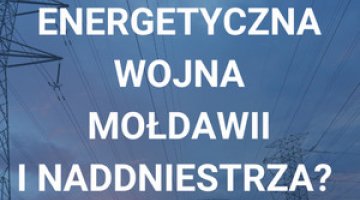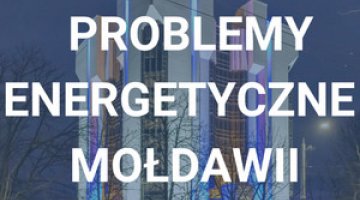Anti-government protests in Moldova
On 25 September protests were held in Chisinau against Moldova’s pro-West president Maia Sandu and the Moldovan government linked to her Party of Action and Solidarity (PAS). There were around 7,000-10,000 protesters who above all raised social issues and criticised the government for gas prices (which have been rising sharply over recent months) and the high inflation rate. They also demanded Sandu’s resignation and a snap parliamentary election.
The demonstrations were organised by the opposition party Șor, led by Ilan Șor, a politician and businessman who fled the country in 2019 when the oligarch Vlad Plahotniuc was ousted from power. Șor has been accused of complicity in the embezzlement of US$ 1 billion from the Moldovan banking sector in 2014. In 2014 he was sentenced to seven and a half years in prison for fraud and money laundering linked to the scandal. After leaving Moldova, he moved to Israel (he also holds Israeli citizenship), but remains a member of the Moldovan parliament. Șor participated in the protests online and announced that they would be repeated every week until the government resigns.
Commentary
- This was not the first demonstration Șor organised in September. The previous week similar protests took place and the protesters set up a small tent city near the presidential palace. In both cases a significant percentage of the participants were elderly people brought to the Moldovan capital from across the country, mainly from smaller-sized towns. It is very likely that part of the protesters were paid to participate (there were media reports that the payment was MDL 200, that is approximately 10 euros).
- These protests are motivated by Moldova’s worsening financial situation, linked above all to rising gas prices. Within a year payments for gas rose by over 500% (from MDL 4.6 for 1 m3 in October 2021 to MDL 29.2 for 1 m3 in October 2022). Electricity and food prices have also grown and in August the inflation rate reached 34.3% year on year. This dramatic spike in prices has given rise to social discontent and has been one of the factors to have led to a decline in the support for the government. According to a survey conducted in September by iData, 19.4% of voters support the PAS (down from 25.5% in January).
- The rising prices have been driving up the popularity of opposition parties. The populist, pro-Russian Șor which has mainly social demands could now obtain 16-17% of the vote. Șor would take part of the votes away from the pro-Russian Bloc of Communists and Socialists (BECS) which could count on approximately 21% of the vote. Following the arrest of the Socialist leader and former Moldovan president Igor Dodon, the party is in crisis (Dodon himself backed the protests). The declining popularity of the ruling PAS and growing social discontent have also provided encouragement for other politicians. Recently, Renato Usatîi, the leader of Our Party and former mayor of Bălți (Moldova’s second largest city) has announced his return to the political scene. Furthermore, in September the current mayor of Chisinau and former Socialist party politician, Ion Ceban, registered a party – the National Alternative Movement.
- The Șor party has Russia’s clear support. In recent weeks the Kremlin’s main propagandists, Vladimir Solovyov and Margarita Simonyan, have been regularly reporting about the protests organised by Șor and have hailed Ilan Șor as the leader of the Moldovan opposition and the symbol of change. At the beginning of September representatives of the party were received by the chairman of the State Duma’s Foreign Affairs Committee, Leonid Slutsky. They are believed to have discussed the lowering of prices for Russian gas supplies to Moldova and the lifting of the embargo on agricultural goods (imposed on Moldova in August). Several days after the meeting, Slutsky sent a letter to Șor in which he promised to assist in lifting the sanctions.
- It does not seem likely that further planned protests could present a genuine threat to the government, even if they escalate, and this may occur in coming months due to constantly increasing energy prices. The Moldovan government remains stable and the PAS has a working majority in parliament. Furthermore, until now no anti-government demonstrations in Moldova’s history (even ones more numerous than the recent ones) have succeeded in toppling a president or in replacing the ruling majority. However, social discontent will likely mount and this will lead to a further fall in the popularity of the PAS.




